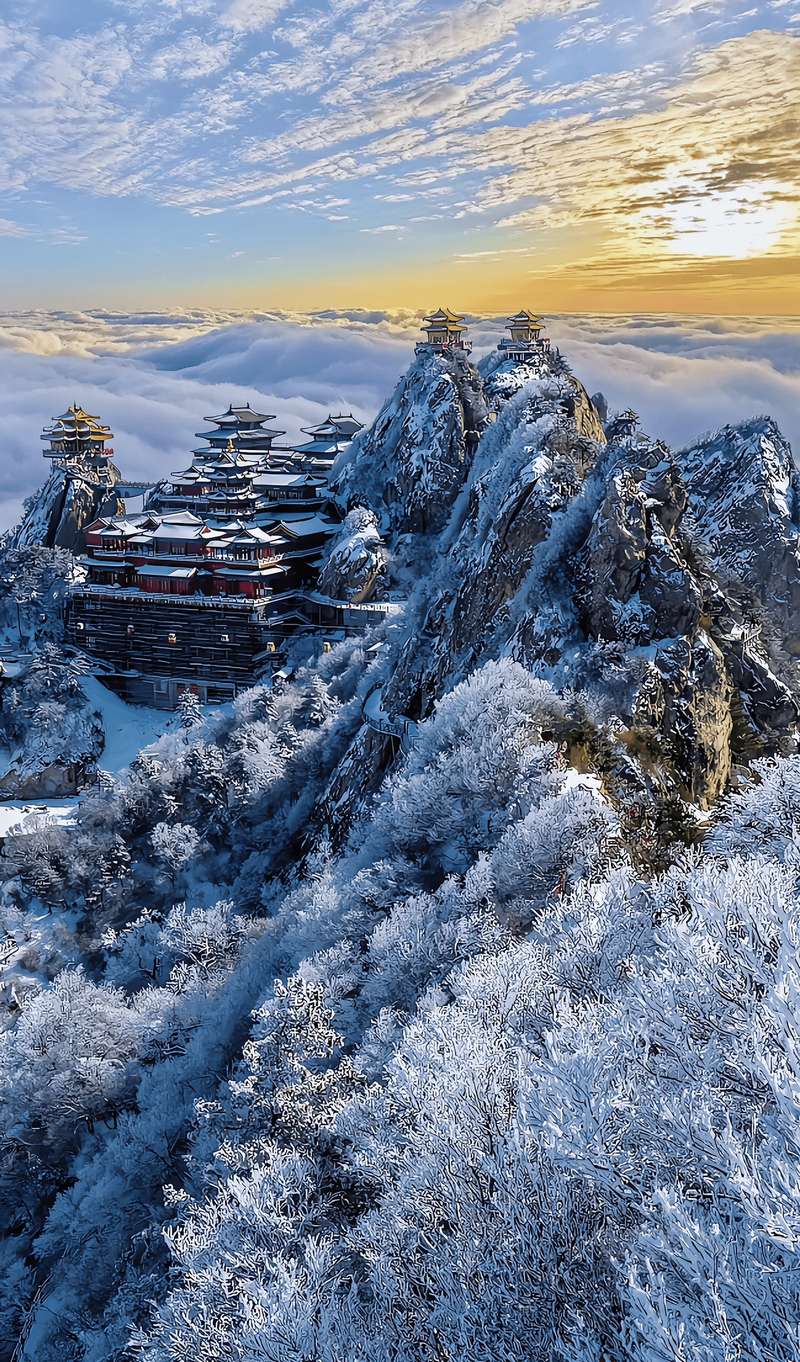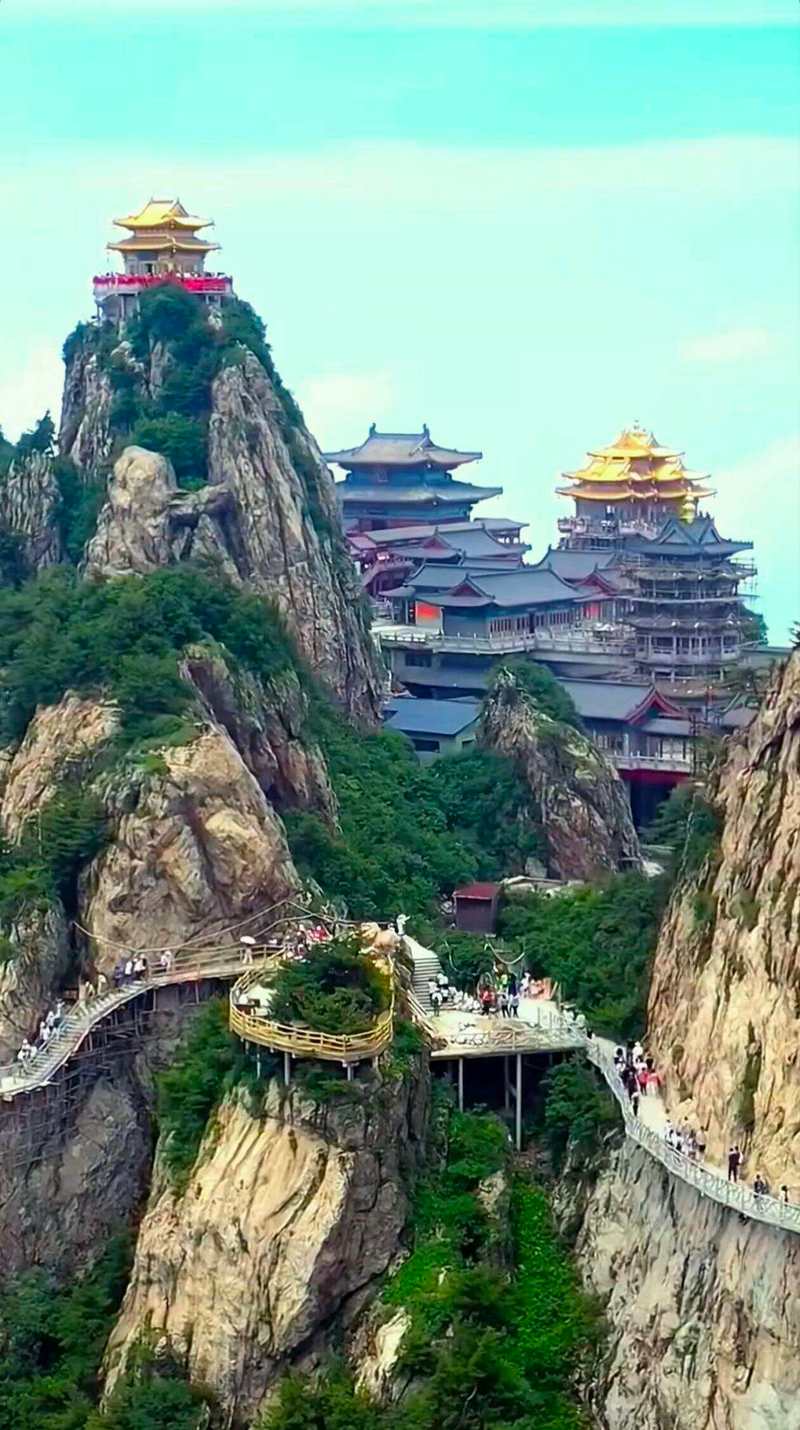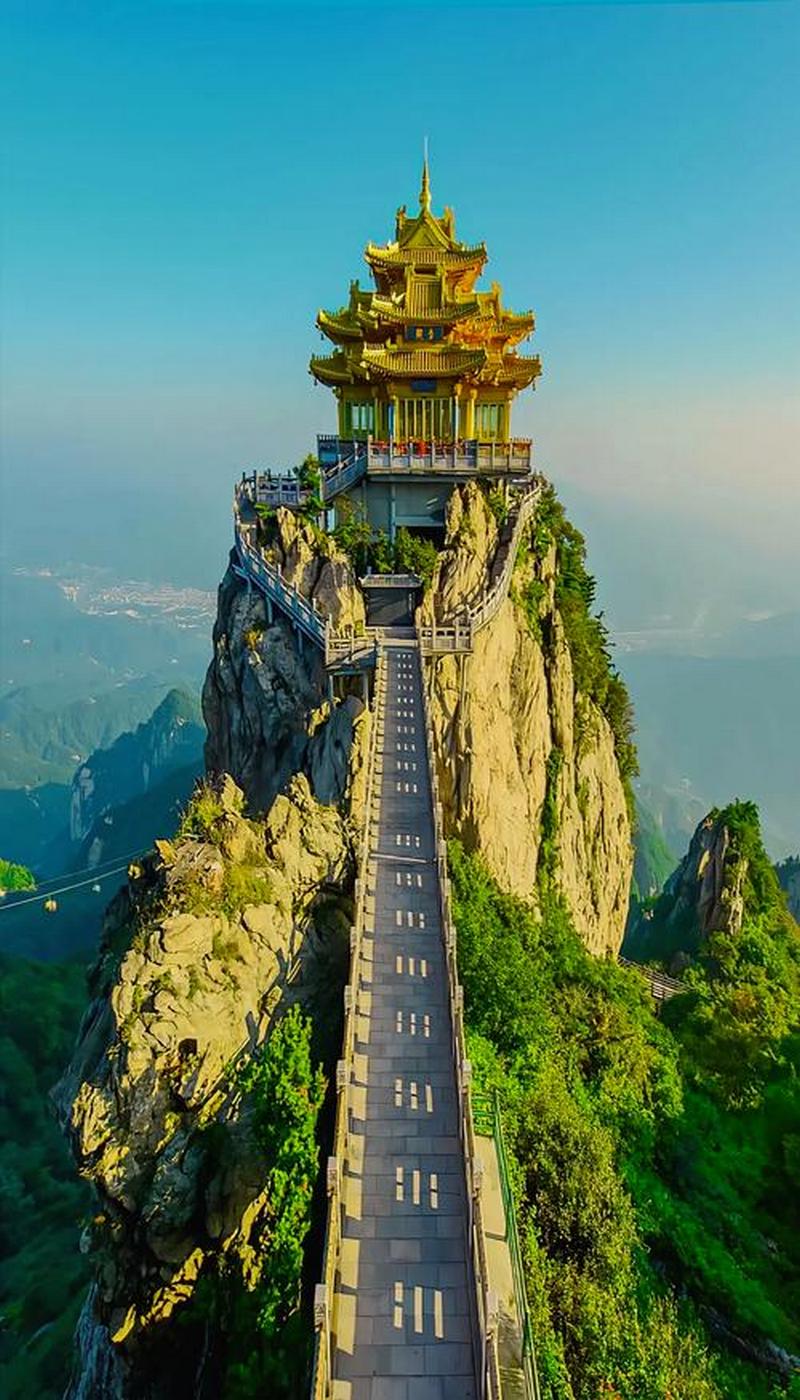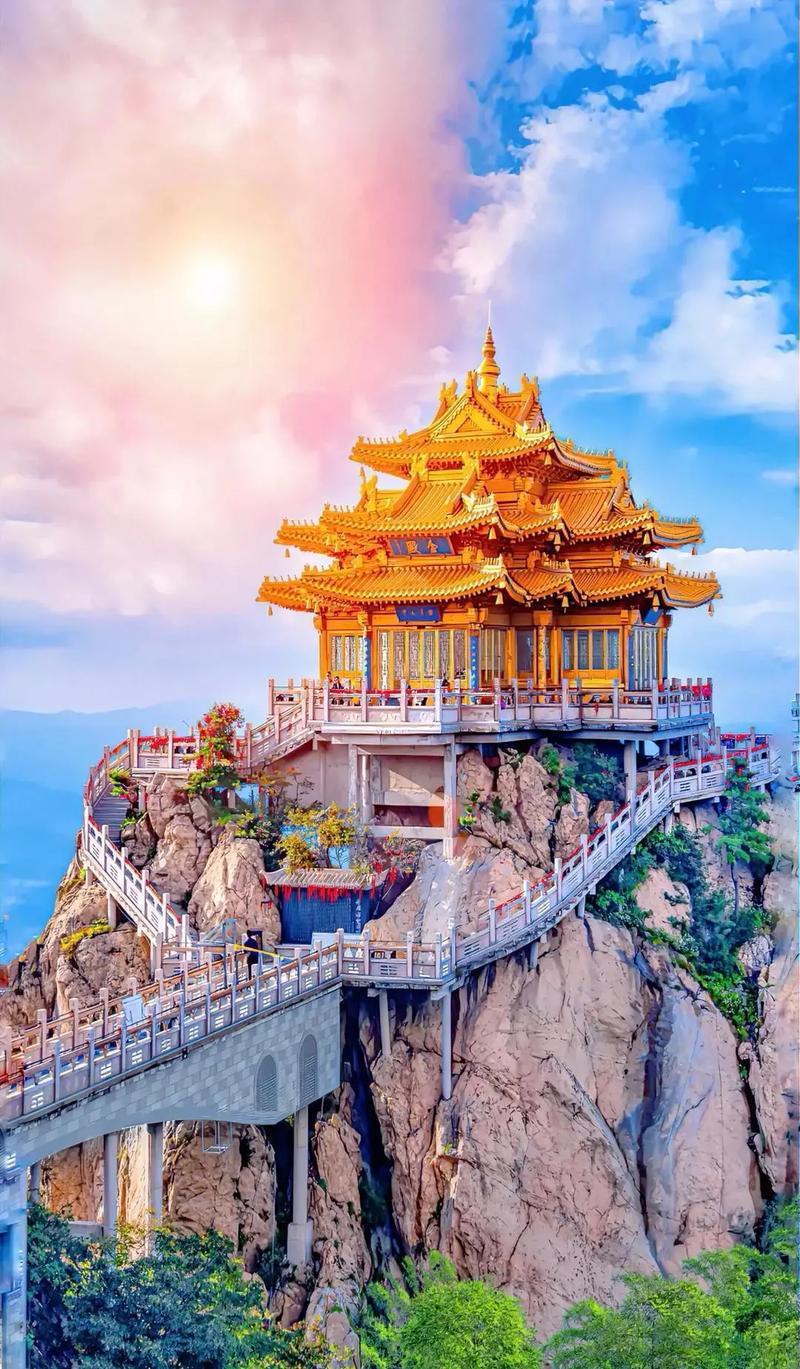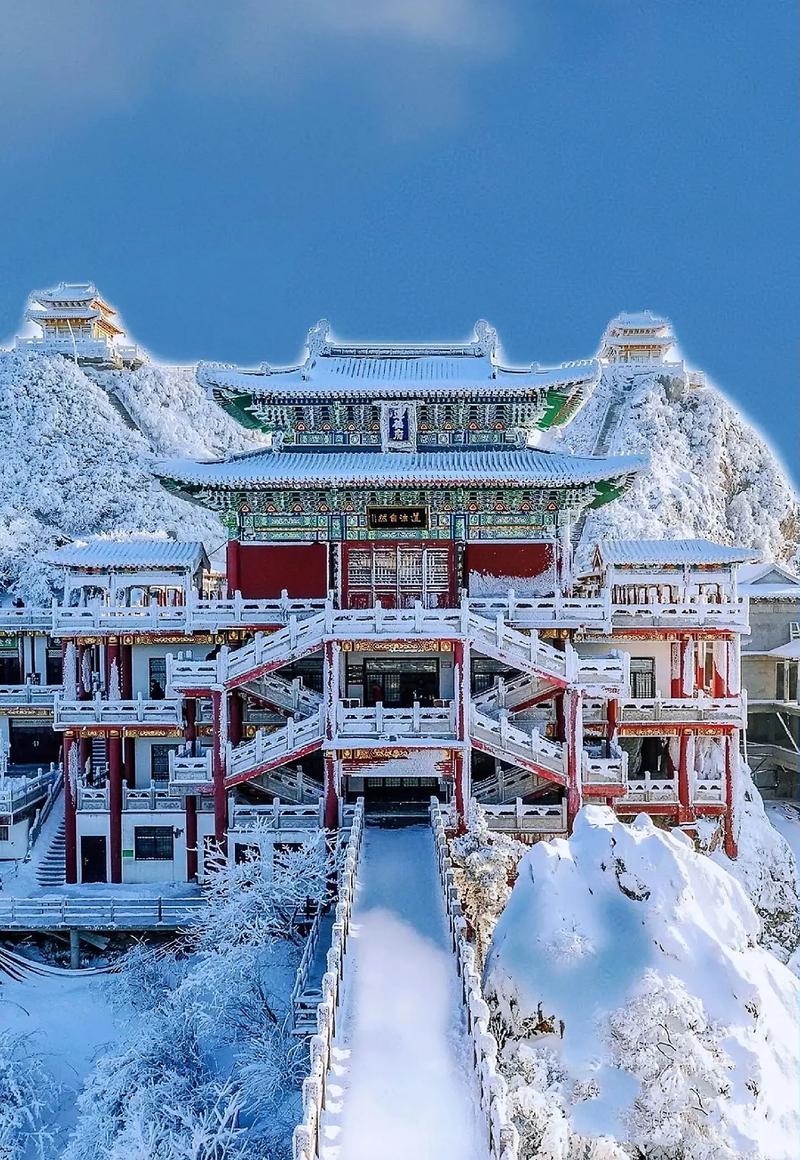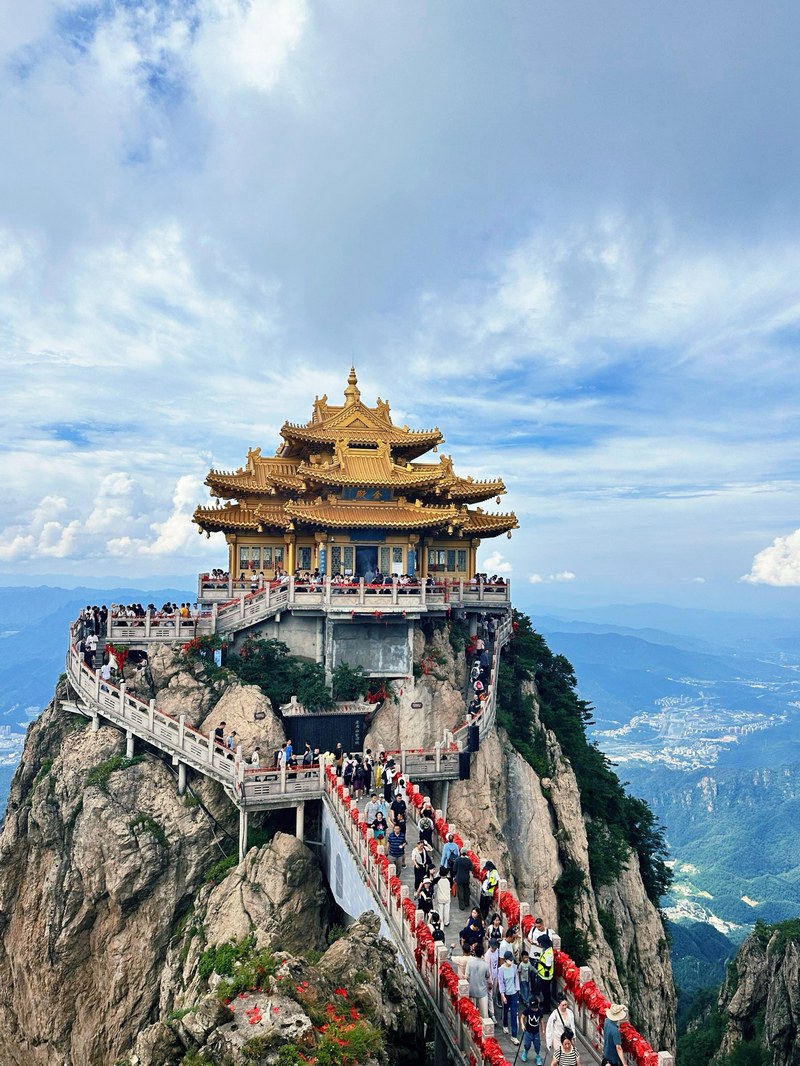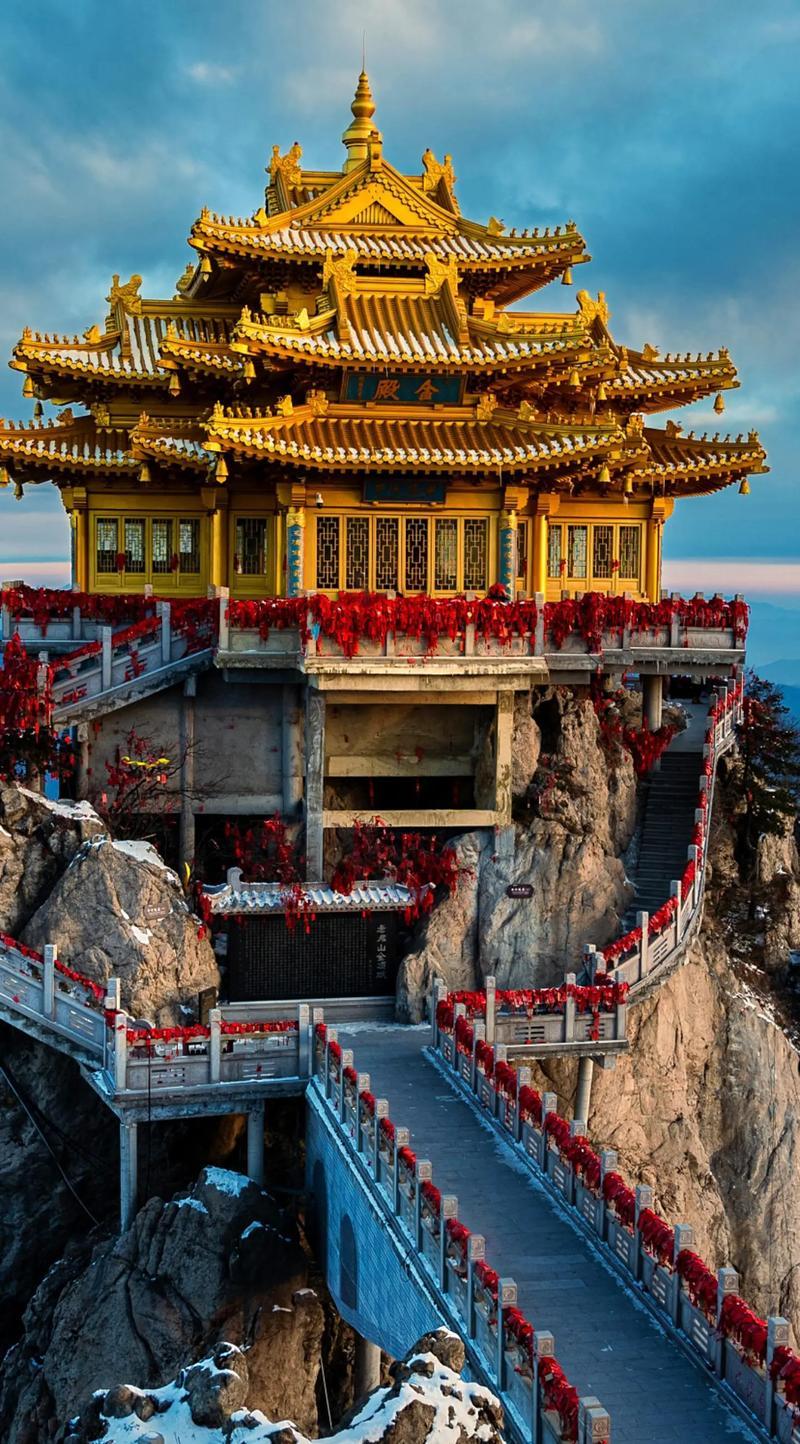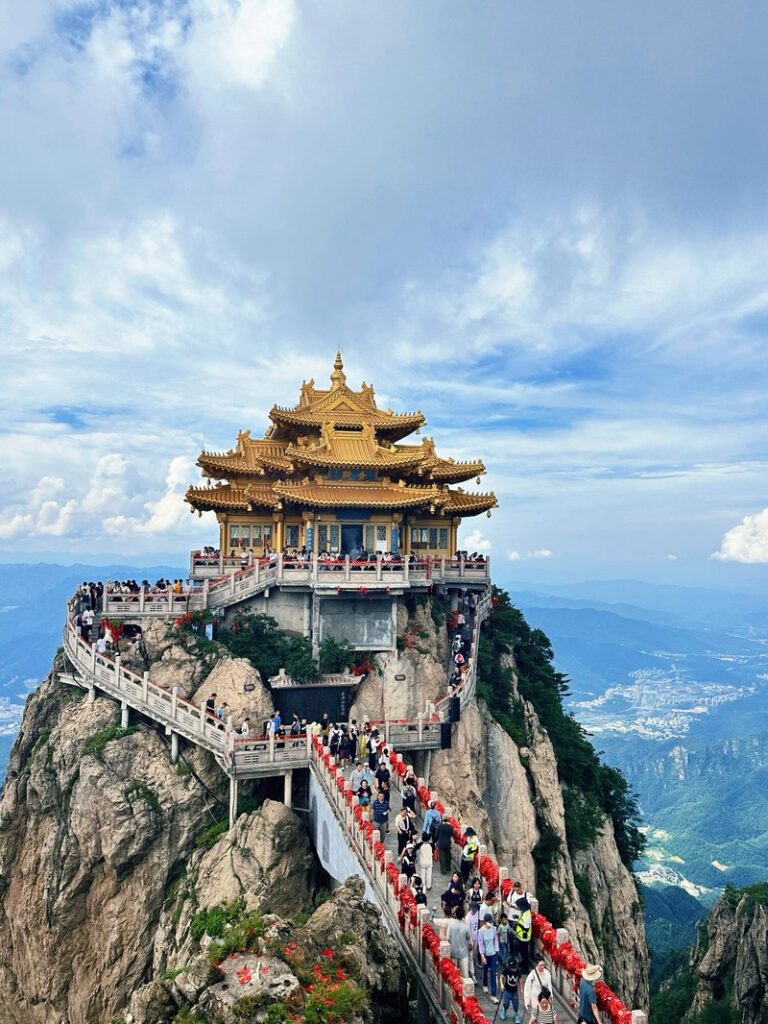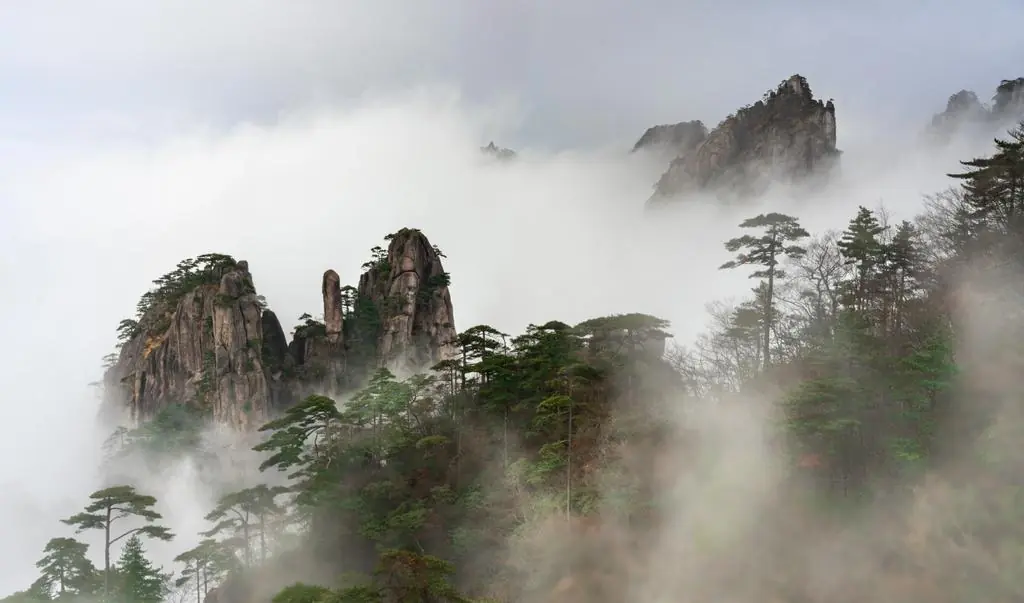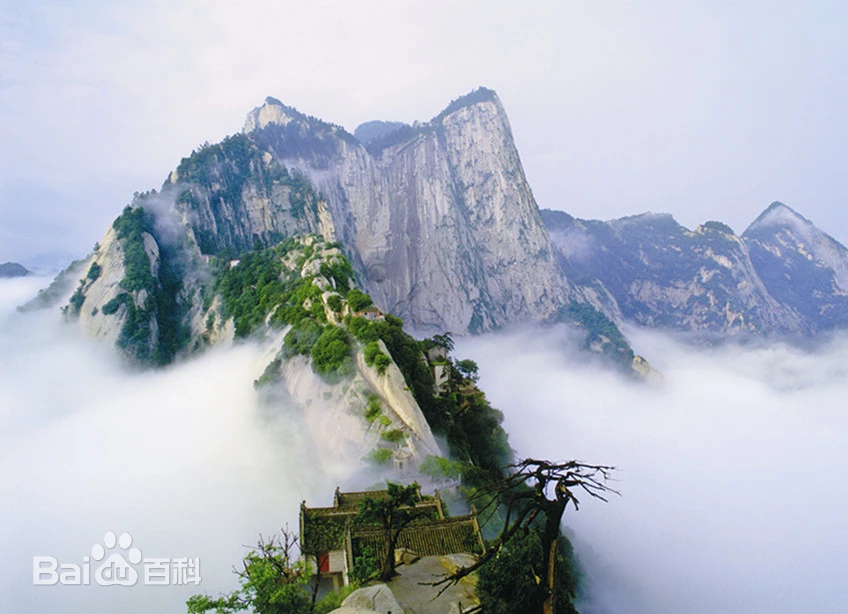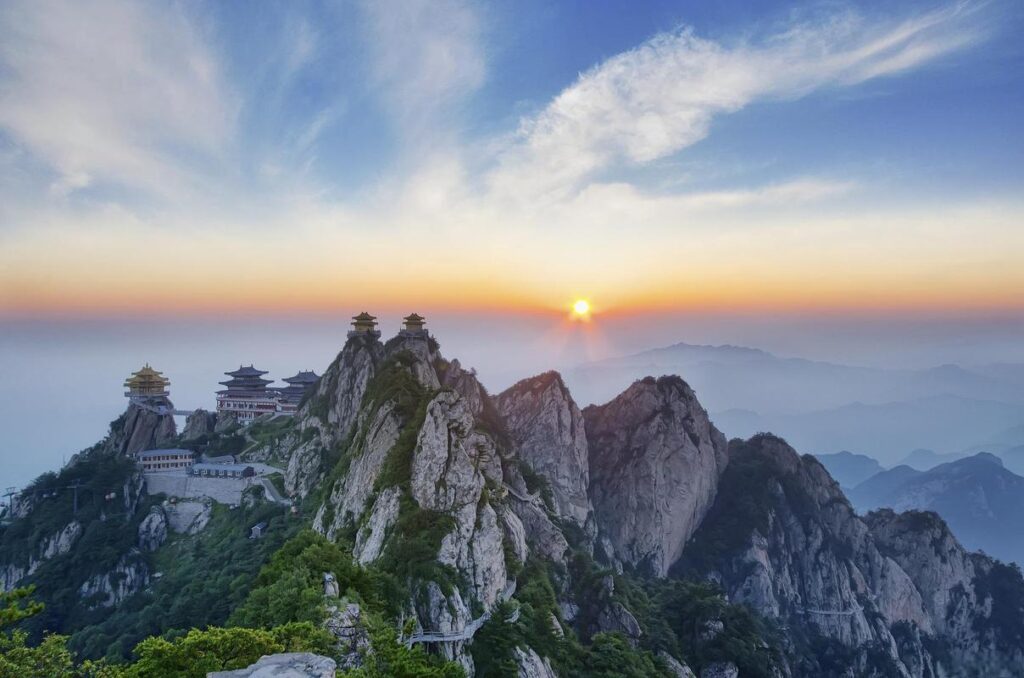Laojun Mountain (China Hill): A Sacred Peak of Daoist Culture and Natural Splendor
Nestled in the heart of Henan Province, Laojun Mountain—reverently known as “China Hill” among global travelers—stands as a majestic blend of spiritual heritage and breathtaking natural beauty. Recognized as a UNESCO Global Geopark and one of China’s most iconic Daoist sanctuaries, this mountain offers an unforgettable journey into China’s ancient wisdom and awe-inspiring landscapes.
1. The Legend of China Hill: Where Nature Meets Divinity
Laojun Mountain, or “China Hill”, derives its name from Laozi (Lao Tzu), the founder of Daoism, who is believed to have meditated here over 2,000 years ago. The mountain’s name translates to “The Laozi Mountain,” symbolizing its deep connection to Daoist philosophy and its status as a spiritual pilgrimage site.
Key Highlights:
- Golden Summit (Jinding): At 2,217 meters, the summit offers panoramic views of rolling clouds and jagged peaks, often described as “China Hill’s Crown Jewel.”
- Daoist Temples: The mountain is dotted with temples like Laojun Temple and Lingguan Hall, where incense swirls alongside chants of ancient rituals.
2. Natural Wonders: Exploring China Hill’s Ecological Treasures
Designated as a UNESCO Global Geopark, Laojun Mountain captivates visitors with its geological marvels and biodiversity.
Must-See Attractions:
- Cloud Sea Phenomenon: Witness the mountain’s ethereal “Cloud Ocean,” where mist blankets valleys like a painting come to life.
- Stone Forests & Waterfalls: Hike through the Ten-Mile Gallery, a natural corridor of quartzite formations, and discover hidden waterfalls like Jade Fairy Fall.
- Flora & Fauna: Home to rare species like the golden monkey and dove trees, China Hill is a paradise for nature enthusiasts.
3. Cultural Immersion: Daoist Heritage on China Hill
As a cornerstone of Daoist culture, Laojun Mountain offers visitors a chance to delve into China’s spiritual roots.
Experiences to Embrace:
- Sunrise Meditation: Join monks at dawn for meditation sessions overlooking the mist-shrouded peaks.
- Festivals: The annual Laojun Mountain Daoist Festival (April/May) features rituals, martial arts displays, and traditional music.
- Sacred Statues: Don’t miss the 59-meter-tall Laozi bronze statue, the world’s tallest depiction of the philosopher, gazing serenely over China Hill.
4. Adventure & Accessibility: Planning Your Visit to China Hill
Best Time to Visit:
- Spring (April-June): Blooming azaleas and mild temperatures.
- Autumn (September-November): Vibrant foliage and clear skies.
Travel Tips:
- Cable Cars & Trails: Two cableways (Zhongling and Yunjing) provide access to scenic routes. Advanced hikers can tackle the Plank Walk clinging to cliffs.
- Nearby Attractions: Pair your trip with visits to Luoyang’s Longmen Grottoes or Shaolin Temple.
5. Why Laojun Mountain Embodies the Spirit of “China Hill”
More than just a mountain, Laojun Mountain represents the harmony between humanity and nature—a principle central to Daoism. Its trails, temples, and timeless vistas make it a microcosm of China’s cultural and ecological grandeur. Whether you seek spiritual solace, photographic inspiration, or rugged adventure, “China Hill” promises an encounter with the soul of China.
Plan Your Journey:
- Location: Luanchuan County, Luoyang City, Henan Province, China.
- Entry Fee: ~¥100 (peak season); cable cars cost extra.
- Keyword Tip: Use “China Hill” in meta descriptions, image alt texts, and headers to boost SEO visibility for global travelers.
Capture the essence of China’s sacred landscapes—Laojun Mountain, the ultimate “China Hill” experience, awaits!



